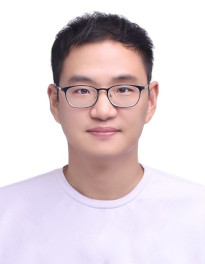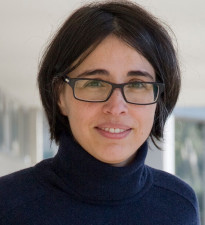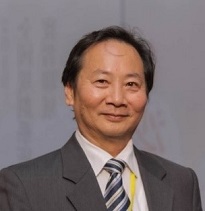Recordings of the upcoming webinars (2020) will be available within 7 days after each event and linked to the presentations below. 2016-2019 webinar recordings are available for viewing on CENTRA's Vimeo channel
2020 Global CENTRA Webinar Series
Global CENTRA invites you to attend the following webinars to learn about ongoing and proposed CENTRA collaborative research. The purpose of these webinars is also to engage international researchers in transnational collaborations. Webinar presentations will include descriptions of specific areas or questions where collaborations are desirable and attendees will have the opportunity to follow up with presenters on their interest in engaging in such collaborations. On this page you will find information about the webinar times, dates, speakers and registrations pages that link to the abstract of each presentation (webinar times and dates may be subject to change).
The Global CENTRA Webinars are free and open to all, whether they have been involved in CENTRA member organizations or not. Please invite your colleagues and students interested in these topics and may benefit from interacting with the speakers and CENTRA researchers! Questions? Please e-mail centra@acis.ufl.edu.
Here is a preview of current scheduled webinars and more potential topics being confirmed during the Fall of 2020. More details are being updated here as they become available. Check back to this page often and follow us on Facebook globalcentra and Twitter @globalcentra.
2020-2021 Past Webinars(video recordings can be viewed)
- 10/7/2020 webinar, Differential Privacy and its Applications on Data Release and Data Collection, Speaker: Dr. Chia-Mu
- 10/21/2020 webinar, KISTI Supercomputing for COVID-19 Challenges, Speaker: Dr. Sangjae Seo
- 11/04/2020 webinar, Edge X and IoT technology, Speaker: Dr. Kiwook Kim
- 11/18/2020 webinar, Edge intelligence: QoS-Cost tradeoff for learning-based services at the edge, Speaker: Dr. Hana Khamfroush
- 12/02/2020 webinar, InterConnect: European large scale demonstration of IoT interoperability, Speaker: Dr. Fábio Coelho
- 12/16/2020 webinar, EdgeVPN.io: Software-Defined Overlay Virtual Private Networks for Edge Computing, Speaker: Dr. Renato Figueiredo
- 01/20/2021 webinar, STAYAWAY COVID, Speaker: Dr. Rui Oliveira
- 02/03/2021 webinar, AI-Support Network Control and Management towards Beyond 5G Era, Speaker: Dr. Hiroaki Harai
- 02/17/2021 webinar, Dynamic Interactions between Human and Information in Complex Online Environments Responding to SARS-COV-2, Speaker: Dr. Yan Wang
- 03/03/2021 webinar, Management of geospatial time series from ship measurements in the scope of the AIR_DataNet infrastructure, Speaker: Dr. Susana Barbosa
- 03/17/2021 webinar, IoT Edge Computing Technologies, Speaker: Dr. Yuuichi Teranishi
- 03/31/2021 webinar, The full-scale experiment testbed of building green energy technology – The SPIN Lab in Taiwan, Speaker: Dr. Yen-Jong Chen
Past Webinars
Date: 10/7/2020
9 AM Eastern | Convert to local timeDifferential Privacy and its Applications on Data Release and Data Collection.
Video RecordingSpeaker: Dr. Chia-Mu Yu
Department of Information Management and Finance, National Chiao Tung University, Taiwan
Short Abstract
Differential privacy can be seen as a de-facto standard for data privacy. Compared to the conventional de-identification approaches such as k-anonymization, l-diversity, and t-closeness, differential privacy can not only have a provable privacy guarantee but also achieve better data utility. Differential privacy has been deployed by government agencies such as the U.S. Census Bureau and commercial companies such as Apple, Google, and Facebook. In this talk, we will overview how differential privacy helps data release and data collection without sacrificing personal privacy.
Date:10/21/2020
9 AM Eastern | Convert to local time
KISTI Supercomputing for COVID-19 Challenges
Video RecordingSpeaker: Dr. Sangjae Seo
Korea Institute of Science and Technology Information
Short Abstract
Continuing global pandemic of coronavirus diseases (COVID-19) is a serious threat to global health. Drug repurposing is an attractive approach for the immediate development of treatments for COVID-19. In this regards, it is important to perform high-throughput screening on approved drugs for rapid identification of drug candidates. Our approach utilizing supercomputer resource allowed fast screening of 19,168 drug molecules. We targeted to identify potential drug candidates, which can inhibit the main protease of severe acute respiratory syndrome coronavirus 2 (SARS-CoV-2). Based on the docking calculation and molecular dynamics simulation, we selected 8 drugs as potential candidates, and in-vitro test is undergoing to validate calculation results.
Date:11/04/2020
9 AM Eastern | Convert to local time
Edge X and IoT technology (KISTI)
Video RecordingSpeaker: Dr. Kiwook Kim
Korea Institute of Science and Technology Information
Short Abstract
KISTI is preparing for the convergence of edge computing and IoT as the next challenge for the ScienceLoRa project. As Chicago's AoT (Array of Things) project has shown, the infrastructure that processes IoT data at the local edge can be an enabler for numerous IoT application studies. In particular, AI processing at the edge is an essential part of the research using image/video data. We need to deploy edge computing resources on our IoT network infrastructure (IoT gateways and network servers), unlike in the case of AoT, which has deployed it bundled with the sensors. To achieve this, we plan to upgrade the software structure of ScienceLoRa by utilizing a flexible open-source edge IoT platform called Edge-X Foundry.
Date: 11/18/2020
9 AM Eastern | Convert to local time
Edge intelligence: QoS-Cost tradeoff for learning-based services at the edge
Video RecordingSpeaker: Dr. Hana Khamfroush
University of Kentucky
Short Abstract
Edge computing is an enabling technology that pushes computationally intensive services to the edge to attain reduced delay due to physical proximity. However, due to hardware constraints of edge clouds, approaches to optimizing the performance of services while minimizing the cost of service implementation has been considered. More recently, different implementations of deep learning based services such as split learning, and federated learning at the edge have been studied. This talk describes the potential challenges of implementing deep learning-based services at the edge and the QoS-cost tradeoff for such implementations. Some initial results will be presented.
Date: 12/2/2020
9 AM Eastern | Convert to local time
InterConnect: European large scale demonstration of IoT interoperability
Video RecordingSpeaker: Dr. Fábio Coelho, INESC TEC, Portugal
Short Abstract
True interoperability strikes as one of the major challenges for IoT in the home, building and energy domains. As the number of connected devices increases in our smart homes, detachment from vendor ecosystems via true interoperable data solutions and protocols will allow new data-driven services for consumers, building managers and ultimately for energy sector. InterConnect will install large sale demonstrators across 7 European Countries, reaching out more than 1900 households and several industrial and public buildings. A meaningful cascade funding call within the project will allow for external applicants to enroll and leverage on the interoperability framework to sponsor their own demonstrations.
Date: 12/16/2020
9 AM Eastern | Convert to local time
EdgeVPN.io: Software-Defined Overlay Virtual Private Networks for Edge Computing
Video RecordingSpeaker: Dr. Renato Figueiredo
University of Florida
Short Abstract
Edge and fog computing encompass a variety of technologies that are poised to enable new applications across the Internet that support data capture, storage, processing, and communication across the networking continuum: from Internet-of-Things (IoT) devices to edge and cloud data centers. These environments pose unique challenges to the design and implementation of networks: membership can be dynamic, devices are heterogeneous, widely distributed geographically and/or mobile, and potentially assigned private IP addresses constrained by policies of different NAT (Network Address Translation) and firewall middleboxes. This talk overviews EdgeVPN.io, an open-source, software-defined network (SDN) that addresses challenges in the deployment of virtual networks spanning distributed edge and cloud resources. In particular, the talk describes the Evio software architecture, how it leverages standards and open-source software for firewall/NAT traversal (XMPP, STUN, TURN, and WebRTC), how it integrates with open-source SDN software switches (Open vSwitch), and how it supports deployment of unmodified container-based middleware and services (Docker, Kubernetes, and Flannel).
Date: 1/20/2021
9 AM Eastern | Convert to local time
STAYAWAY COVID
Video RecordingSpeaker: Dr. Rui Oliveira, INESC TEC
Short Abstract
Digital contact tracing applications have appeared for the first time in the beginning of 2020, with COVID-19, to complement traditional tracing in a galloping outbreak that quickly became a world-wide pandemic. Test and trace is central to any infectious disease in order to break the chains of contagion. The “manual” contact tracing protocol is however highly dependent on the people’s memory, and resource and time consuming. Intuitively, a digital proximity tracing protocol that could be run by any individual would easily scale out and contribute to the completeness and efficiency of the process. This is the aim of the many digital contact tracing apps being deployed and whose efficacy will need to be assessed in a few months.
Date: 2/03/2021
9 AM Eastern | Convert to local time
AI-Support Network Control and Management towards Beyond 5G Era
Video RecordingSpeaker: Dr. Hiroaki Harai, NICT, Japan
Short Abstract
In 5G and Beyond 5G Era with Internet of things, diverse service requirements come from business and consumers. Thus, traffic increases more. A different service has different traffic characteristics and the traffic fluctuates in time. From a view of service network platform, operational management data and system complexity are increased. Complexity of network design and reconstruction is also increased. The speaker will present AI-support network control and management to solve the problems. He will introduce automatic adjustment of computing resources, namely, inter-service resource arbitration, inter-node VNF migration & chain reconstruction. Those are provided on virtualized networks for service provisioning. Important things are to maintain service quality, to use high-efficient computer resource usage, and speedy construction. This leads to elimination of lack of administrators, rapid service delivery, adaptation to traffic fluctuation, early failure recovery, and QoS suspension. The speaker will also introduce the network operation that includes the above control and management scheme.
Date: 2/17/2021
9 AM Eastern | Convert to local time
Dynamic Interactions between Human and Information in Complex Online Environments Responding to SARS-COV-2
Video RecordingSpeaker: Dr. Yan Wang
University of Florida
Short Abstract
This project advances knowledge of how health and response agencies can better ensure credible information predominates in social media by quantitatively demonstrating the complex roles of social media in information diffusion during the U.S. COVID-19 pandemic response. The research project studies information and human response dynamics in communicating COVID-19 in an online environment, i.e. Twitter. The research identifies key influencers and misinformation sources and examines co-evolution in different information categories over time.
Date: 3/3/2021
9 AM Eastern | Convert to local time
Management of geospatial time series from ship measurements in the scope of the AIR_DataNet infrastructure
Video RecordingSpeaker: Dr. Susana Barbosa, INESC TEC
Short Abstract
An intensive monitoring campaign was recently set-up on board the Portuguese navy tall ship NRP Sagres. A substantial amount (> 10 GB/day) of observations covering multiple domains (space, ocean and atmosphere), was collected over the Atlantic. The dataset resulting from these ship measurements is preserved at INESC TEC's Research Data Management repository and will be made accessible through the AIR_DataNet, a computational infrastructure serving the Atlantic International Research (AIR) center. The ongoing implementation focuses on the development of research data management policies, the set-up of flexible data and metadata models, as well as further data exploration services and interactive computing.
Date: 3/17/2021
9 AM Eastern | Convert to local time
IoT Edge Computing Technologies
Video RecordingSpeaker: Dr. Yuuichi Teranishi, NICT, Japan
Short Abstract
The edge computing architecture enables applications to have a shorter response time, reduces the computation load on devices, and localizes the data processing. These properties are suitable for the real-time and context-aware Internet of Things (IoT) applications. We have been developing a dynamic data flow platform for IoT applications in edge computing environments. To avoid the overloads on network and computational resources that are caused by IoT applications, our platform replicates processes and changes the structure of the data flow dynamically on the distributed computational resources located at network edges and data centers. The talk describes the technologies to implement the platform. The talk also presents several evaluation results and use cases.
Date: 3/31/2021
9 AM Eastern | Convert to local time
The full-scale experiment testbed of building green energy technology – The SPIN Lab in Taiwan
Video RecordingSpeaker: Dr. Yen-Jong Chen, National Cheng Kung University, Taiwan
Short Abstract
To promote the green energy technology industrialization in Taiwan, and entrusted by Bureau of Energy (BOE), Ministry of Economic Affairs (MOEA), the Industrial Technology Research Institute (ITRI) has just finished the construction of a facility of so-called “Subtropical Performance-Testbed for Innovative eNergy Research in Buildings Laboratory”, with acronym the SPIN Lab, located at Shalun Smart Green Energy City in Tainan, Taiwan. It is a full scale testbed for building energy related research. SPIN Lab is a rotatable facility for simulating building at different orientations. It also serves to verify various green building technologies and products, and provides R&D and academic research opportunities, such as construction technology, envelop materials, A/C system, lighting system, IAQ, ventilation, BEMS/HEMS and renewable energy, etc. In the long run, the facility will be helpful for gathering data that are essential to amending building code for better energy efficiency.